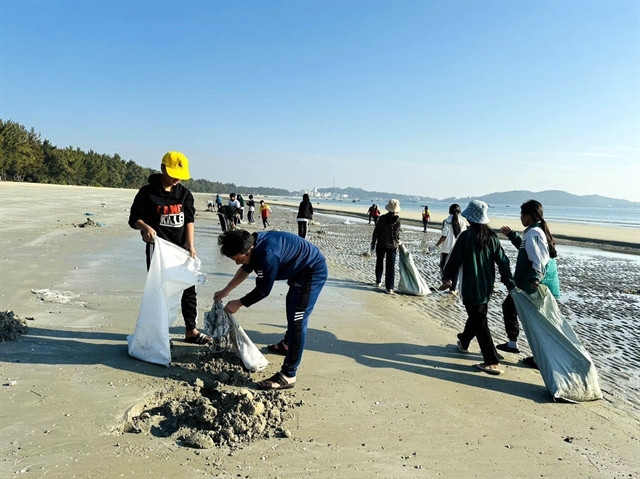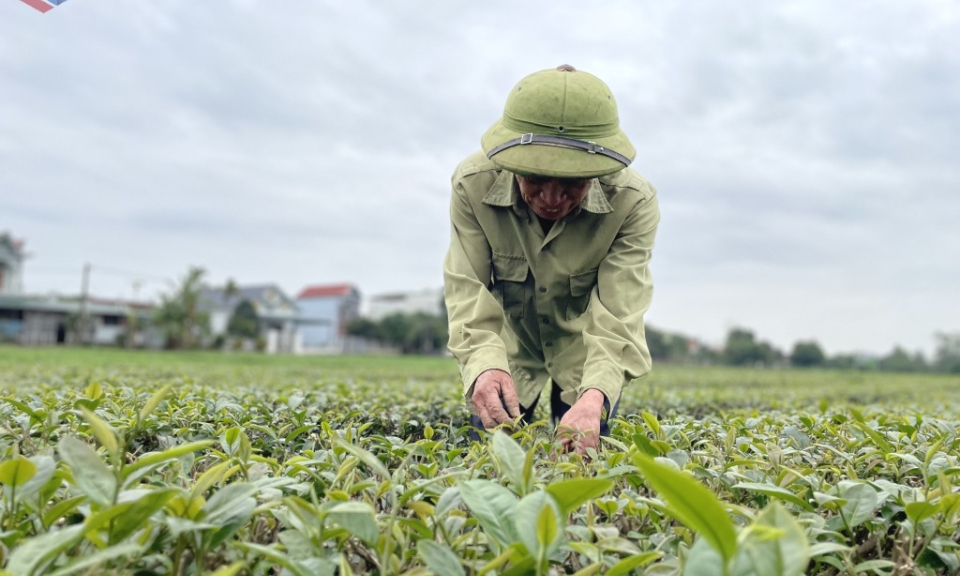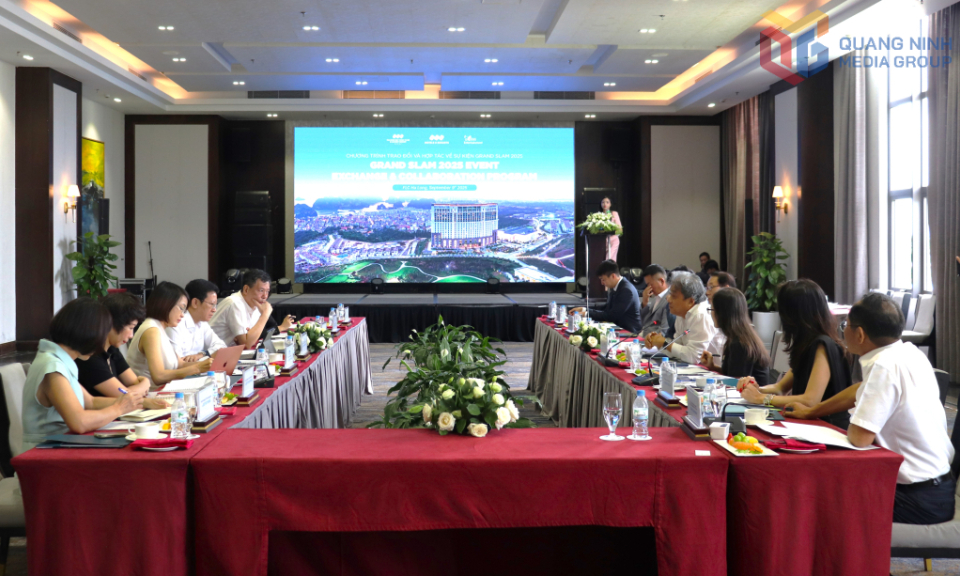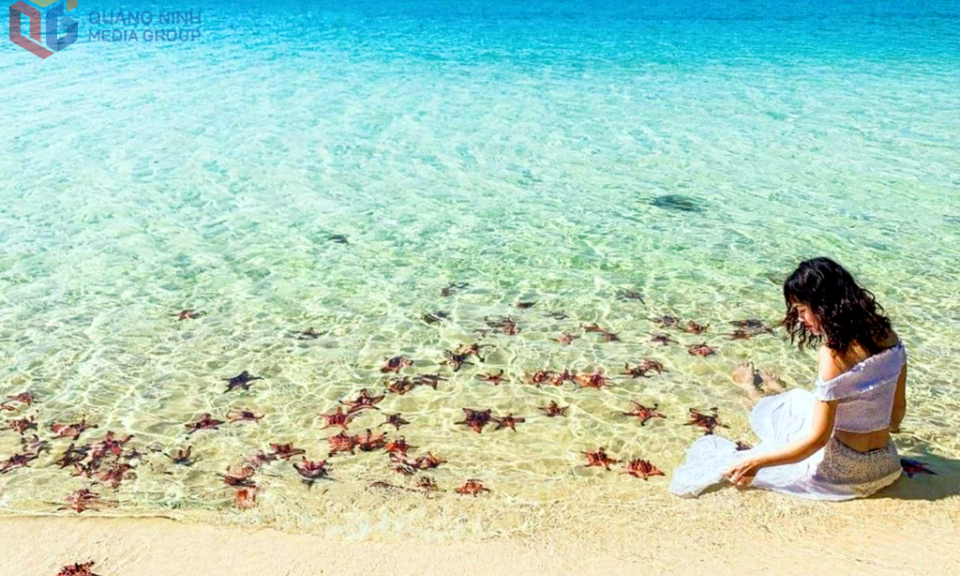Cô Tô needs comprehensive solution for sustainable development
In August 2022, the island district started piloting a Zero Plastic Waste programme, in which the district encouraged residents and tourists not to use nylon bags or single-use plastic on the island..jpg)
The island district of Cô Tô in Quảng Ninh Province needs a comprehensive approach to further enhance environmental protection and foster the development of sustainable and eco-friendly tourism products.
This will attract more tourists, ultimately improving the livelihoods of the local residents, the People's Committee of Cô Tô Island District said.
In August 2022, the island district started piloting a Zero Plastic Waste programme, in which the district encouraged residents and tourists not to use nylon bags or single-use plastic on the island.
After a year of piloting the programme with many positive results, Cô Tô district officially banned tourists from bringing single-use plastic items to the island since mid-September, 2023.
The district police and border guard forces set up control checkpoints at Cô Tô Port. Transportation units, passenger ships and tourism service suppliers were encouraged to replace plastic items with eco-friendly materials.
Đỗ Huy Thông, deputy chairman of the People's Committee of Cô Tô Island District, stated that initially, the district increased communication for residents and tourists. The authority and the community regularly clean up waste along beaches and roads, and collect wastewater for treatment.
So far, Cô Tô Town has established 40 environmental self-management teams in residential areas and an inter-agency team at Cô Tô Port to control the use of nylon bags and plastic items. They have also encouraged residents to equip themselves with two-compartment trash bins for sorting waste at source.
The town has also required boat owners to commit not to discharge waste into the sea. In 2023, Cô Tô Town organised 38 environmental cleanup campaigns at beaches and public areas.
This helped change the habits of tourists and residents in managing and using plastic waste and keeping the island clean, he said.
Nguyễn Minh Huệ, owner of CoTo Center Homestay in Đồng Tiến Commune, Cô Tô Island District, shared that she used glass bottles instead of single-use plastic bottles and replaced nylon bags with paper ones in all guest rooms.
Huệ said she had maintained this change for seven years, avoiding the release of thousands of plastic bottles into the environment each year. She also decorated her homestay with items made of bamboo, rattan and wood instead of plastic.
Hoàng Văn Hải, a tourist from Hà Nội, said that his family visited the island twice. His family did not bring plastic bottles, nylon bags, or single-use plastic items, and this was a meaningful contribution to keeping the environment clean for Cô Tô.
A comprehensive solution needed
In 2023, Cô Tô district welcomed over 310,000 visitors, generating an estimated revenue of nearly VNĐ800 billion (US$32.69 million). However, the influx of tourists caused challenges in waste management and environmental protection.
Nguyễn Thị Thủy, deputy chairwoman of the district's Fatherland Front Sub-committee, mentioned that before the ban on single-use plastics, environmental companies collected a significant amount of waste, ranging from 20 to 25 tonnes per day during peak tourism season.
Thuỷ said tourism-generated waste posed a significant environmental challenge for the island district. Land resources for waste disposal were scarce and the transportation cost for sorted plastic waste to the mainland was substantial. Therefore, the fundamental measures remained raising awareness among residents and tourists, enhancing waste sorting practices, and improving the quality of tourism services.

In the sustainable development strategy, Cô Tô Island District plans to become a prominent centre for cultural, ecological and island tourism in Quảng Ninh and the coastal areas of the Gulf of Tonkin until 2040, with a vision for 2050.
Cô Tô district is investing in waste treatment plants, wastewater treatment systems, and implementing environmental protection activities to ensure water supply, improve transportation infrastructure, and the renovation of historical sites, culinary services and accommodations, to better meet the needs of tourists.
In the coming period, the district will intensify efforts to handle households and organisations not strictly adhering to waste sorting regulations and limiting the use of non-biodegradable nylon bags. It will reject approvals for businesses not complying with environmental protection requirements.
It will also encourage the development of green tourism products and place dual-colour trash bins at appropriate public areas for effective waste collection.






